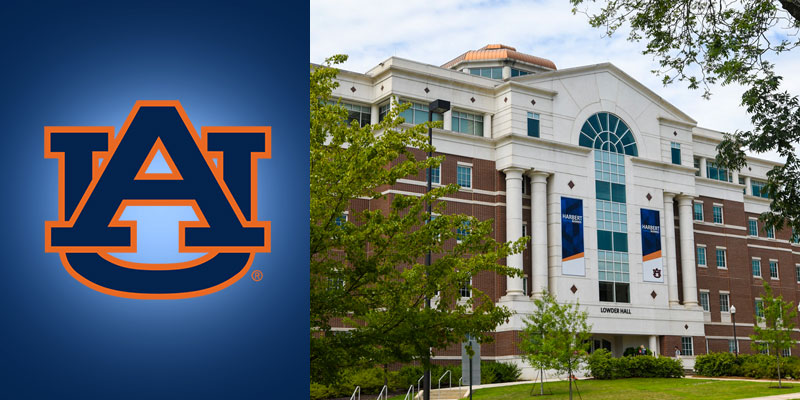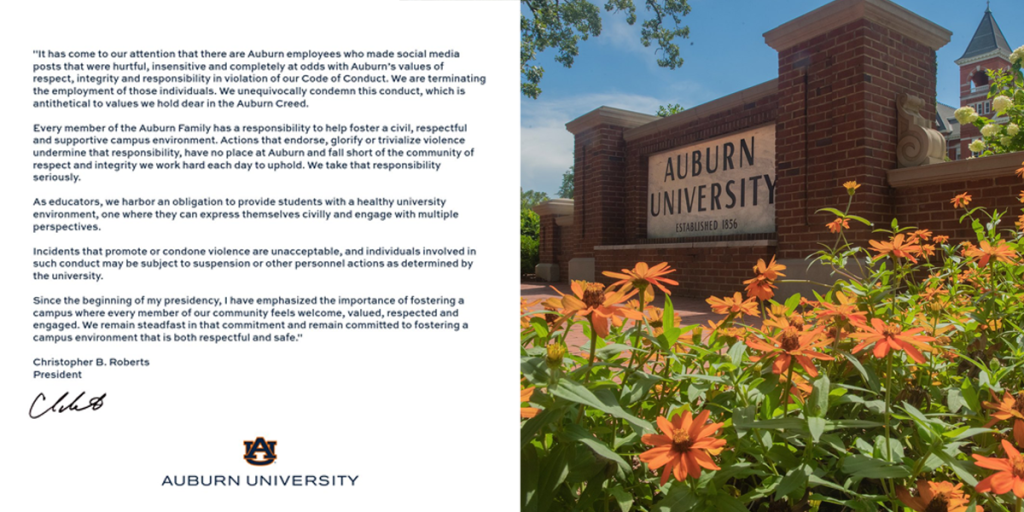AUBURN, Ala. — Gartner, a U.S.-based research and advisory firm, released its “Top 25 Undergraduate Supply Chain Management University Undergraduate Rankings” this week and listed Auburn No. 7—placing the program inside the top 10 in three of its past four rankings. Sixty-seven U.S. and Canadian programs were surveyed by more than 3,000 industry professionals.
Dana Stiffler, vice president and analyst at Gartner, noted there was “very little difference” between the programs near the top of the rankings. “When you get to the top 5 and the top 10, the differential between the programs was very small,” she said. “What this reflects over the years is that so many of these programs, especially at the top half of the rankings, are incredibly strong. They have all of the elements that industry and Gartner has really asked for.”
The new Gartner ranking follows the June 8 announcement of the formation of a Department of Supply Chain Management. The creation of the new department brings expanded resources and focus to the college’s supply chain management program, where enrollment has grown by double digits in each of the past five years.
“The Auburn Supply Chain Management Program is very pleased to be ranked in the top 10 of the Gartner Supply Chain Top 25 Undergraduate Programs for 2020,” said Brian Gibson, the Wilson Family Professor in Supply Chain Management at the Harbert College and executive director of the Center for Supply Chain Innovation. “Consistently achieving a top 10 ranking helps us build credibility with industry, maintain visibility with students and parents, and attract top quality faculty. “As the No. 7 program in a highly competitive field of universities, we offer students an outstanding educational program that is nationally recognized.”
Harbert College’s Supply Chain Management Program, which requires an internship before graduation, invites some of the nation’s leading firms to campus.
Gibson added that the ranking also indicates to employers that Auburn supply chain management graduates are well-prepared. “Our widely recognized internship program and comprehensive curriculum are appealing to industry,” he said. “These capabilities exist thanks to a faculty team that is committed to continuous improvement and adapting content to the dynamic changes in supply chains.”
With 560 students enrolled in May, the supply chain management major at the Harbert College of Business equips students to handle the efficient management of the flow of goods across the global marketplace—a process that grows increasingly complex and time sensitive on an almost daily basis.
Harbert College’s multifaceted curriculum equips students with the conceptual knowledge, analytical skills and strategic insights needed to manage this complexity across the plan, buy, make, deliver process. Part of the program’s strengths is a mandatory—and vetted—internship directed through its Professional Development Program.
Harbert College’s highly sought-after supply chain management graduates gain valuable, real-world experiences via required internships, case competitions and analytical projects. The average starting salary for a Harbert College of Business supply chain management graduate in May 2020 was $60,500.
“Our faculty are highly diverse, industry experienced, student focused, research active and integrate real-world problem solving into every course as directed by our industry partners,” said Glenn Richey, Eminent Scholar in Supply Chain Management at the Harbert College. “Those facts support an educational program that recruiters love. We are highly focused on student experiences, placement and career success. It is the way we believe business education should be done.”
The new Department of Supply Chain Management is home to the Center for Supply Chain Innovation, where scholars, students and external partners collaborate to advance knowledge, drive thought leadership and create practical solutions for supply chain stakeholder communities. It also sponsors an annual symposium among industry leaders—Fusion—and is the new home of an elite publication, the Journal of Business Logistics. Richey and Beth Davis-Sramek, the Gayle Parks Forehand Professor in Supply Chain Management, co-edit the journal.
(Courtesy of Auburn University)













